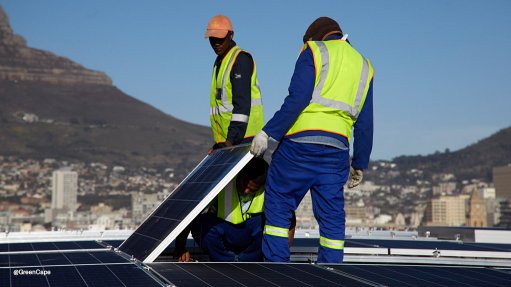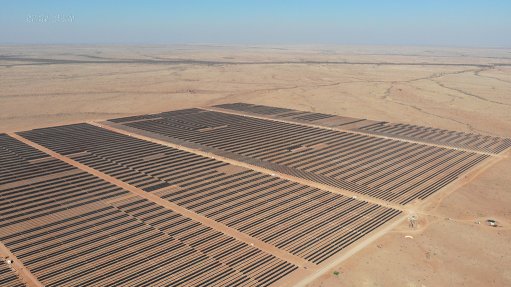Cement industry continues battle to ‘level the playing field’
Faced with an influx of cheap imports, the cement industry is now taking its case to Parliament after it appealed to the Department of Trade, Industry and Competition’s (DTIC’s) International Trade Administration Commission of South Africa (Itac) for support in the form of tariffs.
Industry spokesperson and The Concrete Institute (TCI) MD Bryan Perrie will make the case for the sector in meetings with Parliamentary Committee chairpersons and members this week.
This, he pointed out in a statement on Tuesday, was not an attempt to curtail competition, but simply a call for the playing field to be levelled. “The cost of doing business in our country is significantly higher than in other countries exporting cement to South Africa,” he lamented.
According to the construction market intelligence firm Industry Insight, cement imports into South Africa increased by 293% year-on-year in July; a figure that, so far, seems to be increasing this year.
Perrie lamented that “the industry is facing an existential crisis which threatens to undermine the industrial capacity of the country”. He called for urgent action, which has seen TCI ask Itac for a safeguard action against cheap cement imports that undercut local producers by almost 45%, and which are “skewing the market prices”.
In South Africa, cement manufacturing is subject to regulatory requirements, including the newly introduced carbon tax and ever-increasing energy costs, from which foreign producers are largely exempt, he further lamented.
Perrie also added that the local cement sector paid local taxes, which contributed to the government’s fiscus and national development, something foreign firms do not.
The local cement sector has capacity to produce than 20-million tons of cement a year but is currently producing around 13-million tons a year.
“We want to be part of the inclusive growth championed by President Cyril Ramaphosa at the World Economic Forum (WEF) on Africa in Cape Town, when he stated, 'this is Africa's century, and we want to [use] it to good effect’,” Perrie said.
The best way to do this, Perrie believes, is to build and develop the local industry, and contribute directly to the infrastructure growth that is essential for this to be “Africa’s century”.
“For example, the ratification of the Africa Continental Free Trade Area (AfCFTA),” he said, “will be meaningless if we can’t provide the infrastructure that will facilitate trade … AfCFTA requires the survival of a local, regulated, and efficient local cement and concrete industry."
Perrie makes the case that South Africa’s greatest challenge is unemployment, not only because it may lead to unrest, but also because it stifles growth.
“Stimulating infrastructure growth and local manufacturing capacity would embrace the challenges to improve labour employment opportunities for the youth and adults,” he said, lamenting that cheap cement imports will add to the jobs crisis, the knock-on effect of which will be losses across the full value-chain in South Africa.
Currently, the construction industry accounts for 8% of total formal employment and 17% of total informal employment. The cement sector directly employs more than 7 000 people and indirectly an additional 35 000 jobs are affected. These could all be under threat, Perrie claimed.
“We have already made our presentations to Itac,” Perrie said.
“We want to make Parliament aware of the issues, and why we have applied for the tariffs. We are not looking for protection or a ban on imports – just to level the field.”
Comments
Announcements
What's On
Subscribe to improve your user experience...
Option 1 (equivalent of R125 a month):
Receive a weekly copy of Creamer Media's Engineering News & Mining Weekly magazine
(print copy for those in South Africa and e-magazine for those outside of South Africa)
Receive daily email newsletters
Access to full search results
Access archive of magazine back copies
Access to Projects in Progress
Access to ONE Research Report of your choice in PDF format
Option 2 (equivalent of R375 a month):
All benefits from Option 1
PLUS
Access to Creamer Media's Research Channel Africa for ALL Research Reports, in PDF format, on various industrial and mining sectors
including Electricity; Water; Energy Transition; Hydrogen; Roads, Rail and Ports; Coal; Gold; Platinum; Battery Metals; etc.
Already a subscriber?
Forgotten your password?
Receive weekly copy of Creamer Media's Engineering News & Mining Weekly magazine (print copy for those in South Africa and e-magazine for those outside of South Africa)
➕
Recieve daily email newsletters
➕
Access to full search results
➕
Access archive of magazine back copies
➕
Access to Projects in Progress
➕
Access to ONE Research Report of your choice in PDF format
RESEARCH CHANNEL AFRICA
R4500 (equivalent of R375 a month)
SUBSCRIBEAll benefits from Option 1
➕
Access to Creamer Media's Research Channel Africa for ALL Research Reports on various industrial and mining sectors, in PDF format, including on:
Electricity
➕
Water
➕
Energy Transition
➕
Hydrogen
➕
Roads, Rail and Ports
➕
Coal
➕
Gold
➕
Platinum
➕
Battery Metals
➕
etc.
Receive all benefits from Option 1 or Option 2 delivered to numerous people at your company
➕
Multiple User names and Passwords for simultaneous log-ins
➕
Intranet integration access to all in your organisation


















